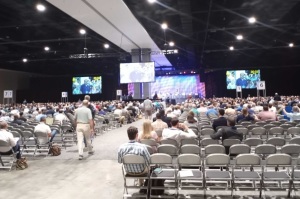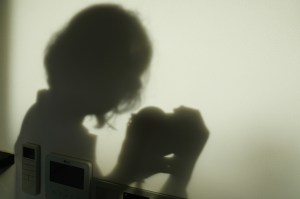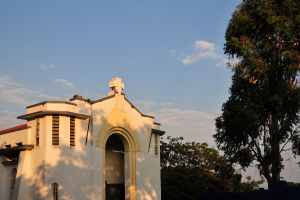Bethlehem Pastor Seeks Baptist Support for Palestine
WASHINGTON – A Palestinian pastor plans on courting evangelical Baptists to join in the effort to raise awareness on the plight of Palestinian people, who he says has endured "massive" human rights violations.
Though the move may initially raise eyebrows – given that many evangelicals are strong supporters of Israel – the Rev. Dr. Mitri Raheb, senior pastor of Christmas Lutheran Church in Bethlehem, said he hopes to reach out to U.S. Baptists for support after attending the fourth annual Human Rights Defenders Policy forum last week at The Carter Center in Atlanta.
Former President Jimmy Carter, who chaired last week's gathering of human rights advocates from 20 countries, is spearheading a new Baptist effort to counter the "negative" and judgmental image of Baptists presented in the media, which some say is largely painted by conservative leaders in the Southern Baptist Convention.
Carter, who is known for his interest in the Israel-Palestinian conflict, has criticized Israel's policies in the Palestinian territories, comparing it to the former policy of apartheid in South Africa in his highly controversial book "Palestine: Peace Not Apartheid."
"I can go on and on and on talking about human rights violations in Palestine," said Raheb at a debriefing forum Monday in Washington on the Sept. 5-7 human rights gathering.
"Unfortunately, somehow the world got used to this; maybe because it is the longest ongoing conflict," said the Palestinian human rights activist.
He added, "When people look at Palestine, often they have the feeling there is a double standard when it comes to human rights, because the rights of the Palestinians are less than the rights of Israeli people."
The pastor criticized Israel for its human rights violations, describing the Gaza Strip as the world's largest open air prison and comparing the West Bank to Swiss cheese where Israel gets the cheese and Palestinians live in the holes.
"The rights to movement of the Palestinians are violated so massively that I'm not sure many people here can imagine," Raheb said, referring to the 1.5 million people in the Gaza Strip that are blocked on all sides from leaving.
The church leader contends it is "hopeless" to try to seek support from the U.S. Congress. At best, Palestinians can only hope to make the U.S. government "have a bad conscience."
"I don't think we can achieve more," noted Raheb.
Rather, the Bethlehem pastor believes reaching out to the faith community is key to changing the situation in Palestine.
"Sometimes it is true that religion can be part of the problem, but there are many other examples where faith can be part of the solution," he noted optimistically.
Recently, dozen of prominent evangelical leaders voiced support for a two-state solution in a letter to President George W. Bush.
On their own, evangelical leaders – including Richard Mouw, president of Fuller Theological Seminary; David Neff, editor of Christianity Today; and Richard Stearns, president of World Vision among others – wrote a letter in July to Bush acknowledging both the Israelis' and Palestinians' rights to the disputed land.
The purpose of the letter, according to its signers, was to rectify the "serious misconception" that all American evangelicals are against a two-state solution and the creation of a new Palestinian state.
"There is a part of the evangelical family which is what I call Christian Zionists, who are just so staunchly pro-Israel that Israel and their side can do no wrong, and it's almost anti-biblical to criticize Israel for anything," said megachurch pastor Joel Hunter, one of the letter's signer, according to the New York Times. "But there are many more evangelicals who are really open and seek justice for both parties."
Evangelicals have only recently joined the bandwagon whereas mainline churches are said to have been advocating for Palestinian human rights for some 15 years. These denominations include the Episcopal, Lutheran, Presbyterian, and Catholic churches, as well as the United Church of Christ.





























